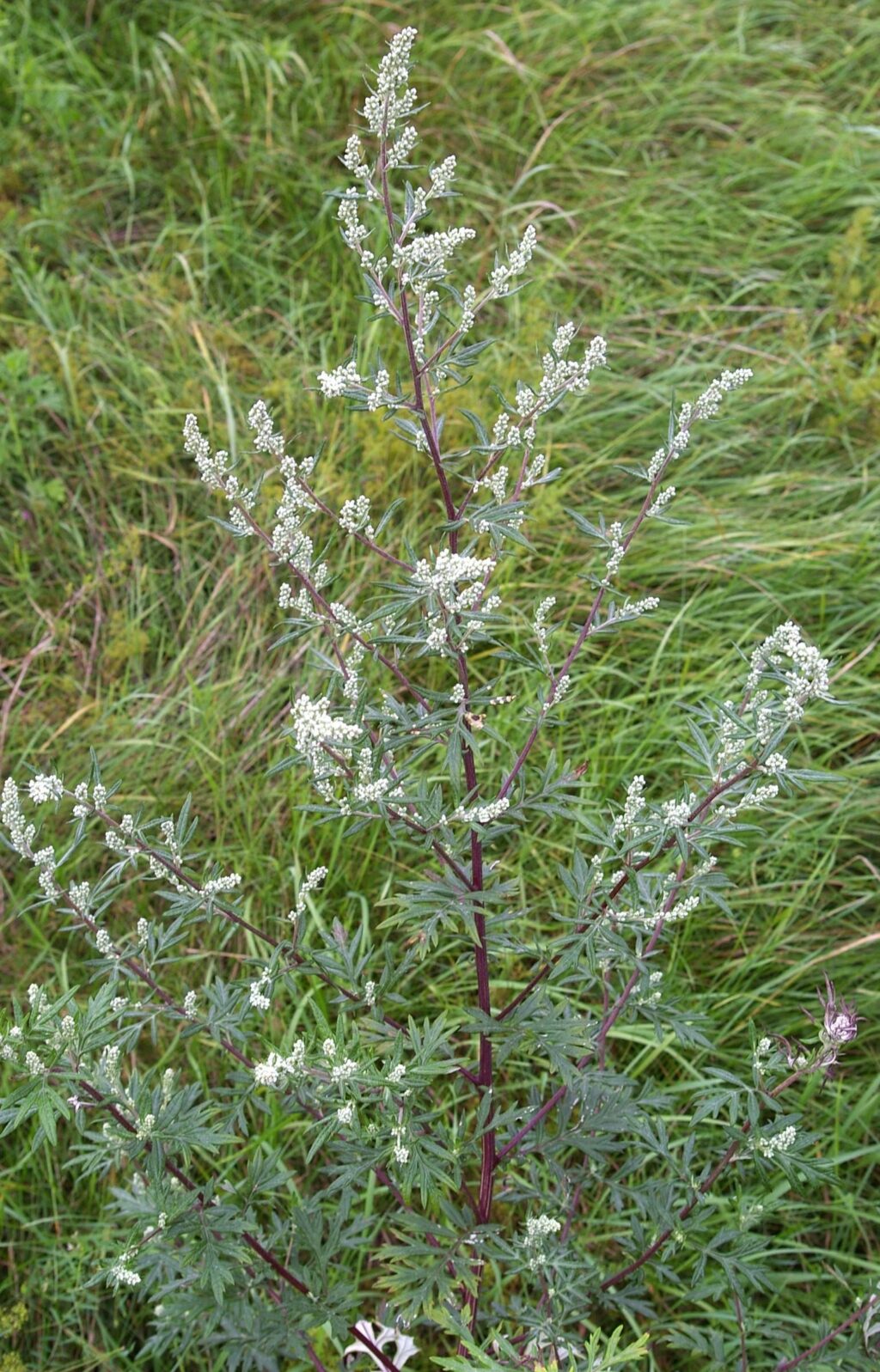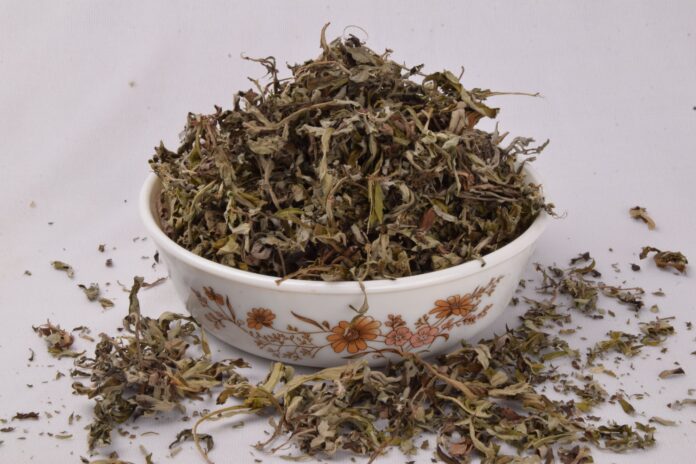
Introduction
Mugwort, scientifically known as Artemisia vulgaris, is a perennial plant that has been used for centuries in traditional medicine and culinary practices. Known for its distinct aroma, mugwort has a rich history, particularly in Asian and European cultures. Its dried leaves, often referred to as “brinjasf” in some regions, have various uses, ranging from herbal teas to spiritual practices. Here, we explore the different forms of mugwort, its potential benefits, and possible side effects.
Forms of Dried Mugwort
Mugwort is versatile in its applications, and the dried leaves are one of the most commonly used forms. Below are some common forms in which mugwort is available

- Loose Dried Leaves This is the most traditional form of mugwort. The dried leaves can be used to make herbal teas, tinctures, or smoked for relaxation and meditation.
- Mugwort Tea Mugwort tea is made by steeping the dried leaves in hot water. This form of consumption is popular for its calming and digestive benefits.
- Tinctures Mugwort tinctures are concentrated liquid extracts made by soaking the herb in alcohol or another solvent. These are used for medicinal purposes and can be applied directly to the skin or taken orally in small doses.
- Essential Oil The essential oil of mugwort is extracted from the leaves and flowers of the plant. It is used in aromatherapy and massage for its relaxing properties.
- Capsules or Tablets Some herbalists and health stores sell mugwort in powdered form, encapsulated for easy consumption.
- Smudging Bundles In many cultures, mugwort is used in spiritual practices, particularly for smudging. Bundles of dried leaves are burned for their purifying and protective qualities.
Benefits of Dried Mugwort
Mugwort has been attributed with numerous health benefits, both physical and psychological. Some of these include

- Digestive Health Mugwort has been traditionally used to support digestion. It stimulates appetite and alleviates indigestion, bloating, and flatulence. It may also help with nausea and upset stomachs.
- Menstrual Health For women, mugwort is commonly used to regulate menstrual cycles and ease menstrual cramps. It is believed to promote blood flow and relieve symptoms associated with PMS.
- Relaxation and Sleep Mugwort has mild sedative properties that may help in managing anxiety, stress, and insomnia. It is often used to induce relaxation and improve sleep quality.
- Antioxidant and Anti-inflammatory Properties The plant contains several compounds that act as antioxidants, potentially helping reduce inflammation and oxidative stress in the body.
- Detoxification Mugwort is known to have detoxifying effects, aiding in the removal of toxins and waste from the body through the digestive system.
- Spiritual Uses In many traditions, mugwort is burned or used in smudging rituals for protection and purification. It is believed to stimulate psychic awareness and enhance dreams.
Side Effects of Dried Mugwort
While mugwort offers numerous benefits, it is important to note that it may cause side effects in some individuals, especially when consumed in excess or in sensitive populations

- Allergic Reactions People with allergies to plants in the Asteraceae family (such as ragweed, daisies, or chrysanthemums) may experience allergic reactions to mugwort. Symptoms can include skin rashes, hives, or difficulty breathing.
- Pregnancy and Breastfeeding Mugwort is not recommended during pregnancy, as it may stimulate uterine contractions, which could potentially lead to miscarriage. It is also not advised for breastfeeding women, as there is limited information on its safety in these cases.
- Interference with Medications Mugwort may interact with certain medications, particularly those that affect the central nervous system, such as sedatives, anti-anxiety drugs, or blood thinners. Always consult a healthcare provider before using mugwort in conjunction with any medications.
- Gastrointestinal Issues Some individuals may experience stomach discomfort, nausea, or diarrhea when consuming mugwort, particularly in large doses.
- Toxicity in Excess High doses of mugwort, especially in concentrated forms like tinctures or essential oils, can lead to toxicity, resulting in symptoms like dizziness, vomiting, or headache.




